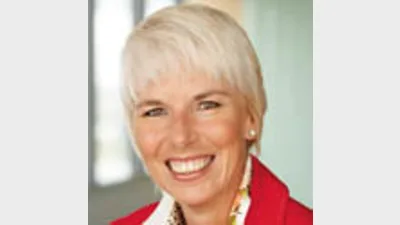Wealth underpins Westpac's strong half



|
|
Westpac Group has surfed the recovery to post a 32 per cent increase in statutory net profit for the six months to the end of March to $2,875 billion, on the back of a 30 per cent increase in cash earnings.
The banking group’s chief executive, Gail Kelly, attributed the strong result to a much-improved Australian economy and what she described as good momentum across all the company’s businesses. She added that Westpac was emerging from the global financial crisis in a stronger position.
She said that Westpac’s institutional bank and wealth businesses had been particularly strong over the half while the St George merger had continued to pay dividends.
Drilling down on the wealth side of the business, Kelly pointed to the success of the BT platforms where cash earnings had increased by 40 per cent driven by stronger investment markets and an improved insurance result.
She said that the BT group’s insurance cash earnings growth of 19 per cent had been driven by good cross selling into both the Westpac and St George networks.
Kelly pointed to Westpac maintaining a cautious approach despite the strong signs of recovery in both the Australian and New Zealand economies.
“We expect the effects of the global financial crisis to be with us for many years,” she said. “Indeed, recent issues in Europe have highlighted the fragile nature of the recovery in some global markets.”
Kelly said that in Australia she expected to see continued impacts over the next two years as the transition towards new regulatory arrangements begins and the economy adjusts to post-crisis credit costs.
Recommended for you
AZ NGA has partnered with an Adelaide-based accounting and financial planning practice as it expands its presence in South Australia.
The central bank has released its decision on the official cash rate following its November monetary policy meeting.
ASIC has cancelled the AFSL of a Melbourne-based managed investment scheme operator over a failure to pay industry levies and meet its statutory audit and financial reporting lodgement obligations.
Melbourne advice firm Hewison Private Wealth has marked four decades of service after making its start in 1985 as a “truly independent advice business” in a largely product-led market.










